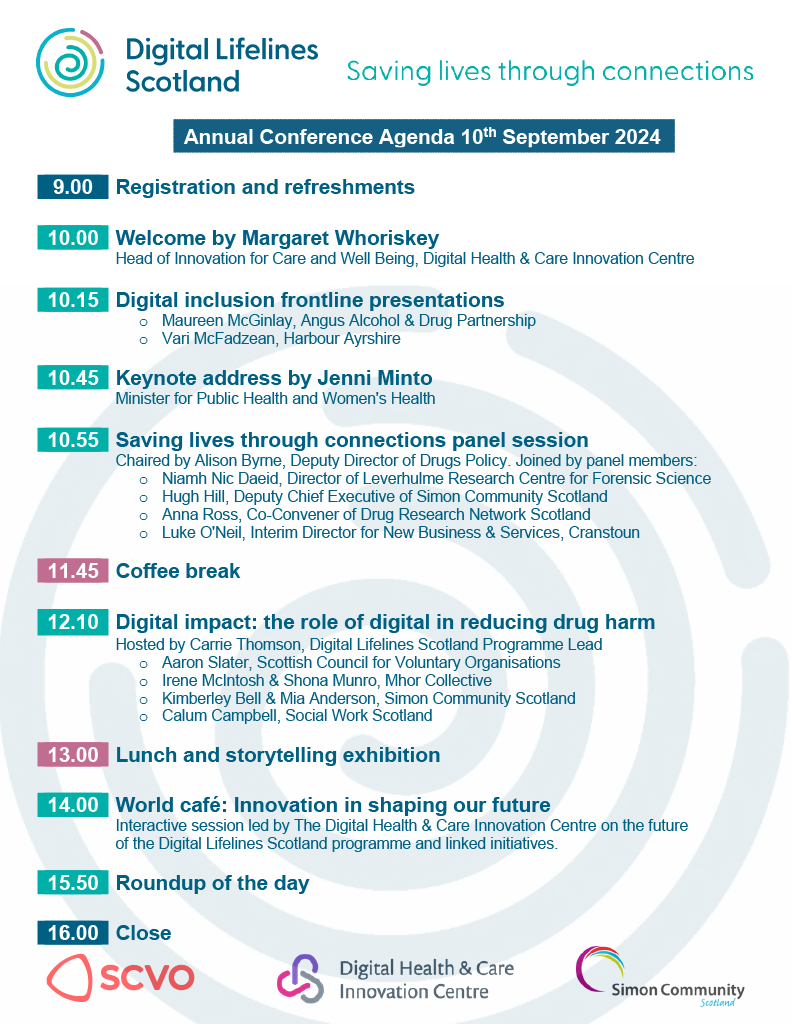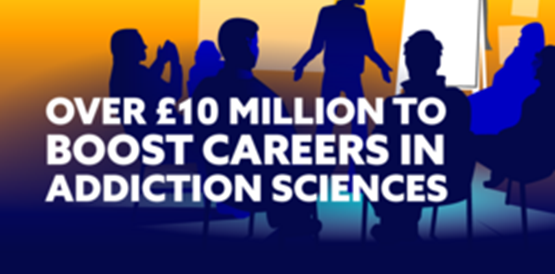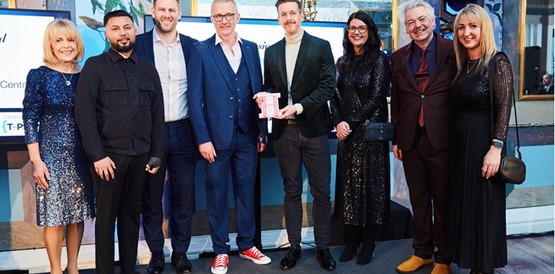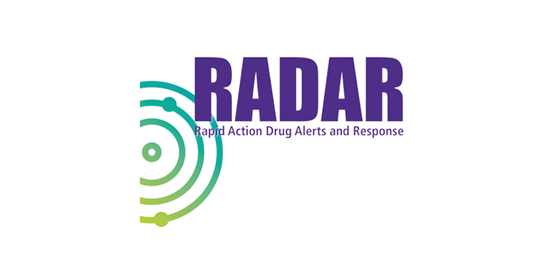
Annual Conference
10th September 2024
Full agenda & speaker bios

Margaret Whoriskey, MBE, Head of Innovation for Care and Well Being, Digital Health & Care Innovation Centre
Dr Margaret Whoriskey joined DHI as Head of Innovation for Care and Well being. Margaret is leading a new programme of work that will strengthen DHI's role in supporting innovation for integrated care and well-being. Having previously been Head of the Scottish Government Technology Enabled Care Programme, Margaret brings substantial cross-sector and international experience to the role.
Vari McFadzean, Harbour Ayrshire
Vari McFadzean, has 12 years of experience with a global online business platform where digital inclusion was the primary purpose. Vari has lived-experience in addiction and has been successful with transforming her life. In addition to this, Vari’s passion for self-development and healing has been hugely beneficial as a group facilitator with EmpowerHer Ladies Group, helping guide our ladies with their own personal growth and development. Vari is a mother to three teenage sons and is passionate about providing support to her local town of Ayr.
Maureen McGinlay, Development Officer at Angus Alcohol and Drugs Partnership
Development Officer for the Angus Alcohol and Drug Partnership. My background is Community Education and a passion for lifelong learning and supporting others through their own health journeys. I started off in the Alcohol and Drugs in Dundee and also worked with families. I then moved into Adult Learning and now I am with the Angus ADP and hope to be able to make a difference for people in Angus. I am passionate about all aspects of health and well-being for myself and for everyone around me. I have 4 children and 2 baby grandchildren whom I love with all my heart.
Jenni Minto, Minister for Public Health and Women's Health
Jenni was born in Elgin and brought up in St Andrews, she returned to the north east to study accountancy at Aberdeen University and then qualified as a Chartered Accountant. Following this she moved to Glasgow to work at BBC Scotland working in many different programme areas over 18 years including helping to establish BBC Alba.
Jenni has since moved to Islay, where she volunteered for charities including the Islay Energy Trust, playing a key role in establishing a community wind turbine on the island; and worked as manager of the Museum of Islay Life. Jenni chaired WW1 commemorations on Islay in 2018, which included over 40 events involving all elements of the community.
As MSP for Argyll and Bute, Jenni has contributed to three parliamentary committees and held membership on 15 cross party groups. Her campaign for the removal of VAT from defibrillators received cross-party support in the Scottish Parliament. Ms Minto was appointed as Minister for Public Health and Women's Health in March 2023.
Alison Byrne, Deputy Director, Drugs Policy, Scottish Government
Alison Byrne is a senior civil servant who has worked in the Scottish Government for 22 years. She has held various positions, mainly in social policy in areas such as housing, regeneration, child poverty and looked after children. Alison is passionate about diversity and inclusion and delivering person-centred services that improve outcomes for all Scotland’s people and communities. Alison led the devolution of social security in Scotland, overseeing the programme to transform the design and delivery of benefits for people living in poverty and disabled people and their carers, including the introduction of the Scottish Child Payment. Alison was appointed as Interim Director for Equality, Inclusion & Human Rights in January 2022 where she led Scotland’s national response to the war in Ukraine, providing safe refuge for 26,000 Ukrainians. She received an OBE for this work in 2023. Alison has been Deputy Director for Drugs Policy since May 2024
Luke O'Neil, Interim Director for New Business & Services, Cranstoun
Luke joined Cranstoun in 2017, driving the expansion and mobilisation of new services to further diversify our offer beyond substance use treatment. Luke leads on income generation and innovation. This includes tendering, fundraising, and the development of new service offers informed by global best practice. Luke has over 15 years’ experience working in the third sector in both frontline, leadership, and trustee roles for charities that both address and challenge health and social inequalities.
Niamh Nic Daeid, Director of Leverhulme Research Centre for Forensic Science
Professor Niamh Nic Daeid is Director of the award winning Leverhulme Research Centre for Forensic Science (LRCFS) the 10 year mission is to provide a robust underpinning for the scientific evidence presented in our Courts. She is a Chartered Chemist and an authorised Forensic Chemist with specialisms including fire investigation, clandestine drug chemistry and explosives. She undertakes forensic casework, primarily in fire scene investigation and has appeared as an expert witness for the Courts. She has chaired the European Network of Forensic Science Institutes (ENFSI) fire and explosion Investigation working group, the INTERPOL forensic science managers symposium and was deputy chair of the Scientific Advisory Board of the International Criminal Court. She is a Fellow of the Royal Society of Edinburgh and holds fellowships with the Royal Society of Chemistry, the Institute of Chemistry of Ireland, the Royal Statistical Society, the UK Association of Fire Investigators and the Chartered Society of Forensic Science. She has received many awards for her work including the Stephen Fry Award for public engagement, the ENFSI Distinguished Forensic Scientist award and the Peter Ganci award for services to fire investigation.
Hugh Hill, Deputy Chief Executive of Simon Community Scotland
Hugh Hill is the Deputy CEO at Simon Community Scotland. After qualifying as a nurse, Hugh left Scotland to work in England as a Community Psychiatric Nurse and then went on to develop integrated multi-agency services for people with severe and enduring mental health problems through the Thorn Nurse initiative. Hugh returned to Scotland 23 years ago initially in Commissioning with NHS Ayrshire and Arran where he led the strategic development of various programmes including CHD, Mental Health and Cancer Services. In 2003 Hugh went back to mental health and joined SAMH as their Director of Services before leaving to work in secure mental health services. Hugh was initially on the Board of Simon Community Scotland and when the opportunity came up to become their Director of Services, he jumped at it. “I really enjoy working in an environment where there is so much compassion, commitment and understanding from staff. It is a great organisation and I feel lucky and proud of what our staff do every day sometimes under really difficult circumstances”.
Anna Ross, Co-Convener of DRNS
Anna Ross is a Lecturer in Health and Social Sciences at the University of Edinburgh, and an Honorary Research Assistant at Drug Science. Dr. Ross completed her graduate studies in Law at the University of Edinburgh, followed by a Masters in Alcohol and Drugs Studies, and a PhD in Sociology and drug policy at the University of Edinburgh. She has worked for the Scottish Government on developing safeguarding protocols for charities, and the UK Government as the Special Advisor to the Scottish Affairs Committee Inquiry into Problem Drug Use in Scotland. In addition she has been on a range of advisory committees in Scotland, set up the Scottish Drug Policy Conversations: a multi-stakeholder deliberative group exploring drug policy issues in Scotland, is co-founder of the Scottish Psychedelic Research Group and the Scottish Cannabis Consortium. Anna Ross has over 20 years experiences of practitioner work with substance use, and identifies as a lived and living experienced researcher. She is passionate about the human rights based approaches to drug regulation, and the developing research around cannabis, psychadelics and other drugs for use for therapeutic and medicinal application.
Aaron Slater, Digital Participation Manager, SCVO
Aaron is the Digital Inclusion Manager at the Scottish Council for Voluntary Organisations (SCVO), the national membership organisation for the voluntary sector. Aaron has worked in different roles in the voluntary sector for 15 years.
As part of a small team, his work has a focus on building the capacity and capability of organisations to deliver digital inclusion work.
Aaron was involved in the initial design and delivery of the Scottish Government’s ‘Connecting Scotland’ programme, supporting over 60,000 households to get connected. More recently, his work has been focused on digital inclusion in health and social care settings.
Kimberley Bell, Development Co-ordinator, Simon Community Scotland
Kimberley is the Development Coordinator for the By My Side app and has been in post since May 2024. She previously worked for 9 years in the education sector. Kimberley is responsible for the continued development of the By My Side app as well as internal and external training on its use.
Mia Anderson, Women's Development Worker, Simon Community Scotland
Mia is a Women's Development Worker in the Connect Hub specialising in Harm Reduction and Digital. She has been in post since March 2024. She has previous direct experience working within other areas of the social care sector as well as working within policy. In post, Mia will be focusing on developing co-produced resources for the By My Side App as well as delivering Harm Reduction workshops in the Connect Hub and getting people who use the space connected digitally.
Irene Mackintosh, Managing Director, Mhor Collective
Irene has worked across the non-profit sector for most of her professional life, with organisations focused on a range of social justice issues. For over a decade, she has specialised in work to address digital inequality, locally, nationally and internationally. She has particular experience in developing partnership approaches with organisations supporting people experiencing homelessness; or supporting people impacted by the justice system or those organisations implementing harm reduction approaches for people currently using drugs. She is also committed to participatory action research and centres lived expertise in all her work.
Shona, Managing Director, Mhor Collective
Shona has worked in digital participation for over a decade and has a particular focus on adult education and the training and support of individuals and organisations to build community capacity. Prior to this, Shona worked with local authorities in community learning and development departments, developing and delivering IT training to adults, as well as arts and cultural activities for young people.
She remains committed to developing work at scale, with an increasing focus on technology enabled care. Shona is also thrilled to be developing digital inclusion work across the globe, supporting communities of practice and delivering shared approaches.
Calum Campbell, Digital Social Work Policy and Practice Advisor
Calum has been with Social Work Scotland since January 2020, initially as a Project Officer in the Self-directed Support Team and now as the Digital Social Work Policy and Practice Advisor. Calum brings 15 years of experience of working in both social care and social work in a variety of roles and settings. As a qualified social worker, Calum has practised across both statutory and third sector settings. The use of digital solutions has been threaded throughout Calum’s social work career, and he is passionate about ensuring we future proof the profession, and that social work adapts to the demands of our digitalised citizens and culture, as he believes digital within social work has the potential to positively change the way we work and improve outcomes for people.
Table 1: Digital inclusion: frontline fears
Key learning from Digital Lifelines Scotland indicates that we need to be upfront about the fears of frontline practitioners when it comes to digital. In this discussion we’ll explore what these fears are, and how we can further develop support to help address them.
Table 2: Digital inclusion: changing culture
Digital inclusion doesn’t just happen. At an organisational level it requires a shared understanding of how it can be embedded effectively and sustainably. In this discussion we’ll explore current challenges for organisations, and what support they might need.
Table 3: By My Side: a digital harm reduction space
A conversation about the award winning By My Side app - a one stop shop for accessing the best evidence based harm reduction resources. We'll be exploring it's functionality, ideas for future development and finding out from you what would be useful and relevant. Please come and share your innovative ideas and contribute to the ongoing development of By My Side.
Table 4: National Mission on Drugs
People who use drugs and their families are often among the most isolated and socially excluded communities in our society. If they are to be supported to access and navigate the complex world of service provision and support, digital inclusion will be a critical element of their journey. In what ways should Scottish Government’s National Mission on Drugs adapt to take best advantages of the opportunities afforded by Digital Inclusion?
Table 5: Digital Front Door
Digital Front Door is an important priority commitment as part of Scotland’s Programme for Government and Digital and Data Strategies for Health and Care. It aims to empower people through access to their own data and information and support the effective flow of information across the whole care system. Help us consider what it means for those at risk of drug related harm.
Table 6: Near Me in Prison - supporting Justice Social Work Social Work Scotland, in partnership with Scottish Prison Services, Scottish Government, and COSLA are exploring the potential benefits of using secure video calling service, Near Me, within prison social work. Currently there are significant pressures facing justice social work, including prison-based social work, which are exacerbated by an increasing prison population, and the increasing complexity of this population. In some cases, a backlog of outstanding parole reports and risk assessments are leading to issues and human rights concerns. There is now an opportunity to explore how use of Near Me may help alleviate pressures, and to support improved pre-release planning and throughcare by facilitating collaboration between partners and strengthening connections to local services.
Table 7: Digital Lifelines Scotland: impact and evaluation
Figure 8 Consultancy are conducting an evaluation of the current phase of the DLS programme. This conversation, facilitated by the research team at Figure 8, will be used to explore the breadth of contribution that DLS has made, and is making, to positive outcomes and long-term impact – for people with lived experience, their families, staff working in services, and for the drug treatment sector as a whole.
Table 8: Digital Mental Health
We will explore what is currently available across Scotland. We will look at some of the logistics of setting up and rolling out digital services at scale. The table will also aim to identify opportunities for the future for further collaboration and integration of digital mental health into Digital Lifelines.
Other stories

UK invests over £10 million to boost careers in addiction sciences
UK invests over £10 million to boost careers in addiction sciences
Digital Lifelines Scotland Wins Digital Inclusion Award 2025 – Bridging the Digital Divide
Digital Lifelines Scotland Wins Digital Inclusion Award 2025 – Bridging the Digital Divide
